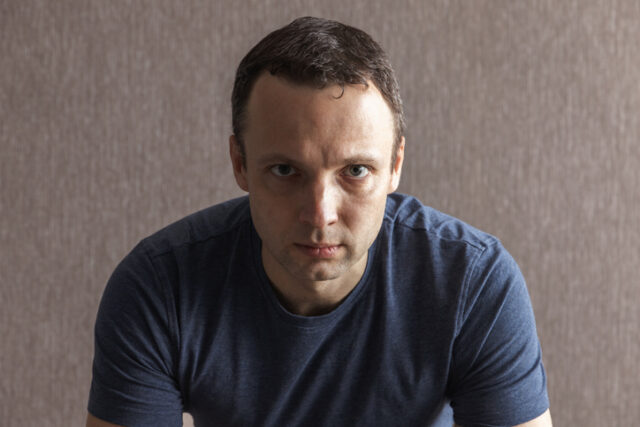Neurodivergence affects the way people think, process, and behave, but those who have it aren’t all that different from everyone else.

Half the time, the most frustrating thing about having a condition that falls under this umbrella — be it autism, ADHD, dyspraxia, etc. — is all the ignorance surrounding it. Many people have particular ideas about what it means to be neurodivergent that those who actually are know is complete nonsense. These misconceptions aren’t just unfair, they’re often incredibly reductive and shouldn’t exist.
1. Neurodivergence is a problem that needs fixing.

One of the biggest misunderstandings is that neurodivergence is something broken that needs to be “fixed” or “cured.” The truth is, being neurodivergent is just a different way of experiencing the world. Many people with these traits see their differences as strengths. They don’t need to change who they are — they just have to embrace how they think and interact with the world around them.
2. All neurodivergent people are the same.

Neurodivergence is a spectrum, and no two people experience it in exactly the same way. Just like you wouldn’t expect everyone with blue eyes to be identical, it’s the same with neurodivergence. Take autism and ADHD — both look different in each person, shaped by their personality, their environment, and how they cope with challenges. So assuming that all neurodivergent people are the same is not only wrong, it oversimplifies how diverse these experiences are.
3. Neurodivergent people can’t succeed.

The idea that neurodivergent people are somehow doomed to fail couldn’t be further from the truth. In fact, many people with these traits excel in their fields and bring fresh, creative perspectives to the table. With the right support and the right environment, they thrive just like anyone else. It’s all about finding what works for them and embracing their unique skills.
4. It’s just an excuse for bad behaviour.

Behaviours like stimming, needing extra time to process information, or getting distracted easily aren’t “bad behaviour.” They’re just how some neurodivergent people naturally express themselves. Labelling them as excuses or seeing them as “problems” only invalidates the challenges that come with living with a neurodivergent brain. They’re not being “difficult”; their brains just function differently.
5. Neurodivergence is just a trend.

With more awareness and diagnoses, some people have started to treat neurodivergence like it’s a “fad” or something that’s overdiagnosed. In reality, better understanding has allowed many people to finally understand what they’ve been dealing with for years. Awareness doesn’t create neurodivergence — it helps people get the support they’ve needed all along.
6. Neurodivergent people lack empathy.

A harmful stereotype often applied to autistic people is that they don’t care about other people’s feelings. In fact, many neurodivergent people feel empathy just as deeply, but might struggle with expressing it in ways that are easily understood. They might not show empathy in the “typical” way, but that doesn’t mean they don’t care. They form meaningful, genuine connections just like anyone else.
7. If you don’t “look” neurodivergent, you must not be.

Neurodivergence isn’t always visible. Many people with neurodivergent traits might mask their behaviours to fit into societal expectations. Just because someone doesn’t outwardly display traits associated with neurodivergence doesn’t mean they don’t experience it, and that assumption disregards their experiences and can make them feel invisible.
8. Medication or therapy can “cure” neurodivergence.

Medications and therapies can certainly help neurodivergent people manage challenges and develop coping mechanisms, but they don’t “cure” neurodivergence. It’s not a disease, for goodness’ sake — it’s just a different way of processing the world. These treatments are about support, not erasure of someone’s identity.
9. Neurodivergent people aren’t capable of independence.

It’s a misconception that neurodivergent people need constant support and are incapable of living independently. While some might need specific accommodations or help in certain areas, most lead full, independent lives. Independence looks different for everyone, and assuming that neurodivergent people are incapable of it undermines their autonomy.
10. They can’t hold down meaningful relationships.

There’s also this idea that neurodivergent people can’t form strong, meaningful relationships, and that’s definitely not true. They often form deep, loyal relationships, though the way they interact socially might look a little different. The quality of their relationships is just as rich and fulfilling as anyone else’s.
11. They’re just “lazy” or “unmotivated.”

When neurodivergent people struggle with tasks, it’s often seen as laziness. In reality, many of them face executive function challenges that make tasks feel overwhelming. They don’t lack motivation, they just have a neurological difference. With the right support, they can achieve incredible things, just in their own way.
12. Neurodivergence is only a childhood issue.

While some neurodivergent traits might be more noticeable in childhood, they don’t simply disappear as someone grows older. Many neurodivergent adults continue to face challenges throughout their lives. Support and accommodations are just as important for adults as they are for children, helping them thrive in their personal and professional lives.
13. They’re all super geniuses.

While it’s true that some neurodivergent people have extraordinary talents, not all of them are “geniuses.” The stereotype of the neurodivergent genius does more harm than good, as it places unrealistic expectations on people, and that’s the last thing they need. Every neurodivergent person is unique and deserves respect, regardless of whether they have a particular talent or not.




